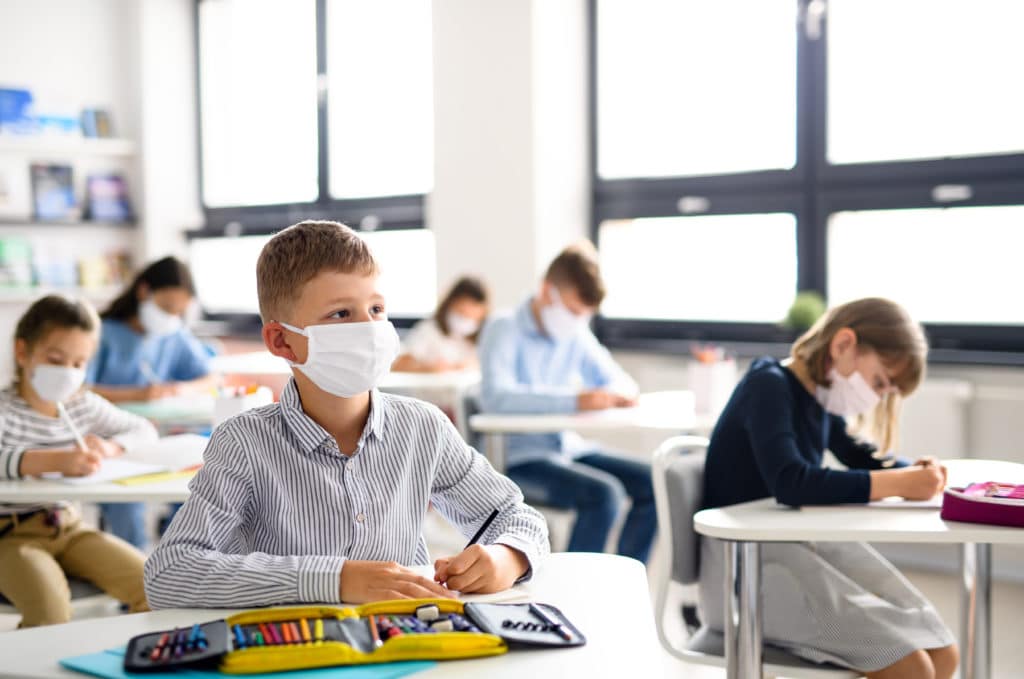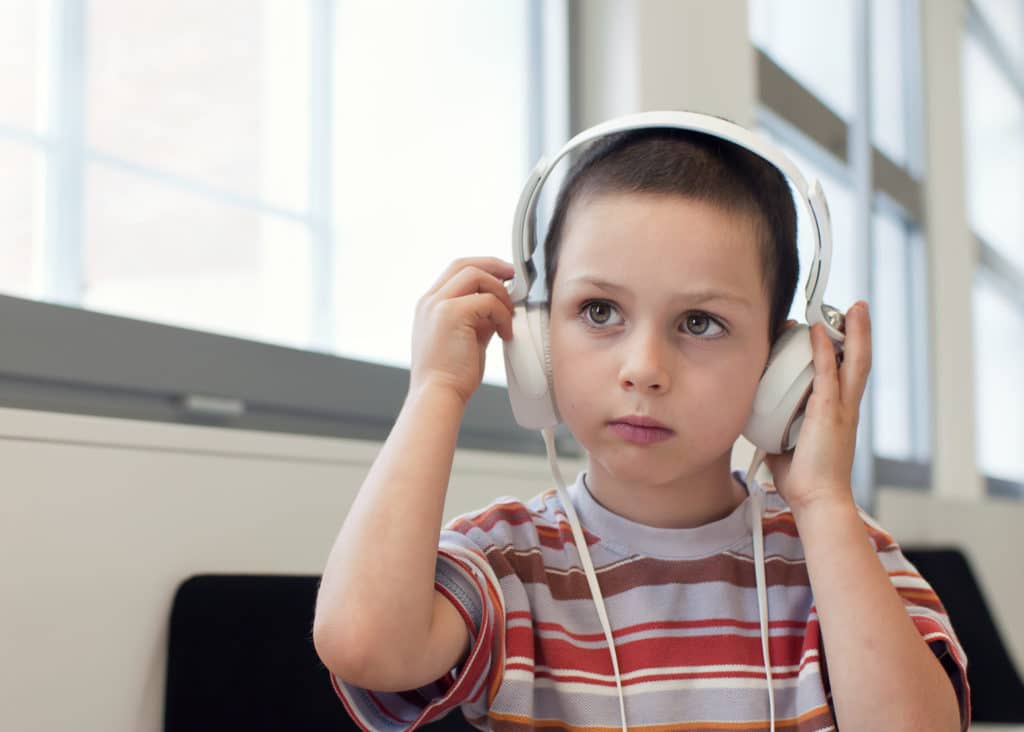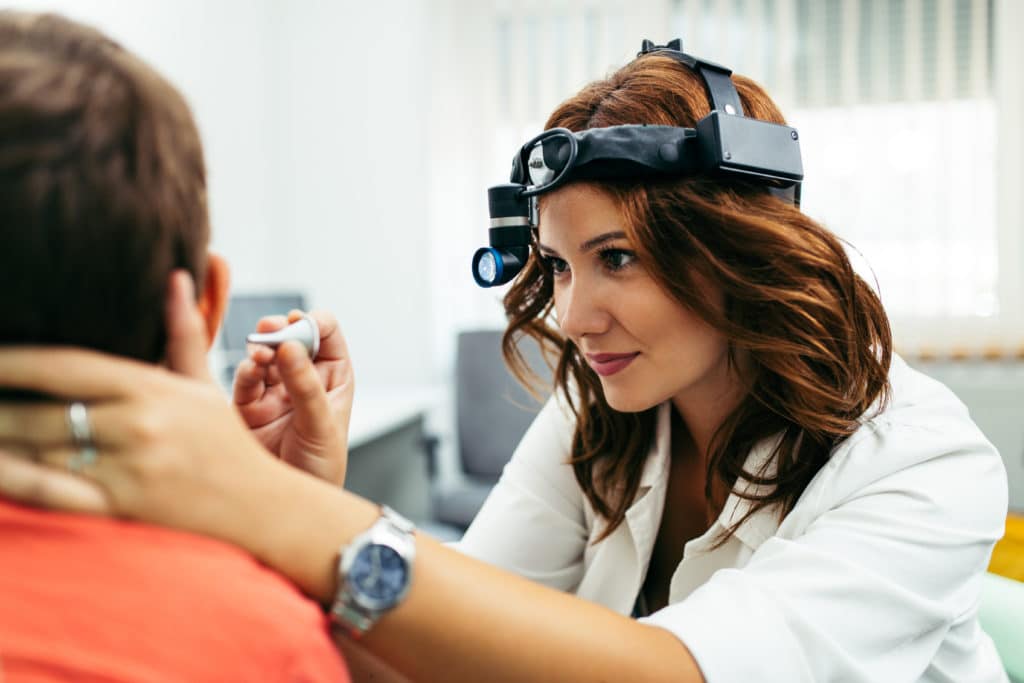
It’s no surprise that in today’s world, with masks and shields and face-coverings becoming our “new-norm”, that communication has to be better now more than ever.
The loss of hearing is generally a gradual process. Initially, the changes may be so subtle that most people wouldn’t suspect anything wrong. More often than not, a parent may feel that his/her child is being rude for not responding to instruction or that maybe the child is “testing” because he or she is not following requested instructions that are being repeated often. When these types of situations occur at school, it can affect a child’s grades, impact them socially, and subsequently damage their self-esteem.
Know the signs:
According to the Center for Disease Control, and American-Speech-Language-Hearing-Association (ASHA), some of the hearing loss signs in children include:
-
- Poor speech development: Many adolescence’ speech is still being developed during the kindergarten years. Missing a hearing test means that their speech center will not fully develop.
- Simple sentence structures: Kids with hearing loss comprehend and produce shorter and simpler sentences than those with normal hearing.
- Inadequate social interaction: A child with hearing issues will have problems socializing with other children and the environment they live in.
- Lower academic performance: Youths with hearing loss struggle in all areas of academic achievement. When a child has a mild to moderate hearing loss, on average, perform one to four grade levels lower than their peers with normal hearing. Unless proper action is taken.
- Lower self-esteem: Children with severe to profound hearing losses often report feeling isolated, without friends and unhappy in school, primarily when their socialization with other children with hearing loss is limited.
These are just some of the many signs that can occur from hearing loss. By knowing what to look for it will give you a good indication that there may be an issue. Again some of these signs can be harder to recognize in younger children than in teens or adults, making screening even more important at a young age.
Why school screenings aren’t enough:

Many times parents assume that school screenings for hearing loss are adequate. However, the typical screening done at schools is very basic and essentially is a pass, no-pass style of test. The examiner will measure soundwaves as your child wears headphones and may be asked to raise their hand or drop a toy into a bucket when they hear a sound. A child will pass if he or she responds at a sound level or volume of 20 decibels (dB) and at all frequencies tested in both ears.
When testing at schools, they are trying to do so in a quiet environment, however, the size of the room type of materials used in the room, i.e brick, drywall, etc all play a role. Given the number of students and time, the test is generally very brief and only testing against a few tones and do not measure higher frequency sounds. Thus, the likelihood of a student with hearing loss passing the test is higher.
Rather, testing in a professional setting, such as Salem Audiology Clinic it is a more controlled environment and the clinic has the ability to test more in-depth and utilize the full array of testing methods to not only determine if a child has hearing loss, but also the severity and at what frequencies they are missing out. There are subtle variations of hearing loss that can only be detected by specialized equipment usually found only in the office of an Audiologist.
A trained professional can then make a recommendation much more quickly on how to combat the child’s loss of hearing and make sure they are fully prepared when starting school.

How hearing screening helps
Screening children’s hearing at a young age provides the opportunity to detect a student’s hearing loss or previously unrecognized hearing loss and intervene to limit further loss and improve learning.
Frequency of screening recommendations in accordance with the American Academy of Pediatrics says hearing screenings should be conducted:
- At school entry for all children
- At least once at ages 6, 8, and 10
- At least once during middle school
- At least once during high school
- For any student entering a new school system without evidence of a previous hearing screening
Some children with other known health or learning needs; speech, language, or developmental delays; or family history of early hearing loss should have testing done more often.
How to prevent hearing loss:
Children and teens are showing signs of hearing loss at an increasing rate due to noise-induced hearing loss.
One in five teens today have some form of hearing loss, about a 30 percent higher rate than in the 1980s and ’90s. Much of this is due in part to the increase in the use of technology such as portable music devices and higher use of headphones. Many devices are only safe to listen to 60% volume.
Make sure your teens aren’t blasting music during a study session, and teach your children about safe listening habits. Listening through headphones at a high volume for extended periods of time can result in lifelong permanent hearing loss for children and teens.
Here are some ways to prevent hearing loss at young ages:
- Turn down the volume on all devices.
- Wear proper hearing protection when attending loud events – i.e sporting events, concerts, fireworks, power tools.
- Buy quiet toys or toys that have volume control and set it to the lowest volume.
- If you live in a noisy location, keep windows and doors closed to minimize potentially harmful outside sounds.
These are some of the best practices to avoid noise-induced hearing loss. Starting as soon as possible, you can begin to create a quieter home and taking action in preventing hearing loss from affecting your child.
Back-to-school is the perfect time to step up your education efforts It’s never too early to teach your children about how to care for their hearing. One of the biggest barriers to healthy hearing is a lack of education and awareness on the matter, so it is important your children are informed as soon as possible. Even if your own child doesn’t have any hearing difficulties, someone in their classroom might!
There’s no better time to check your child’s hearing health. Schedule an appointment today!
